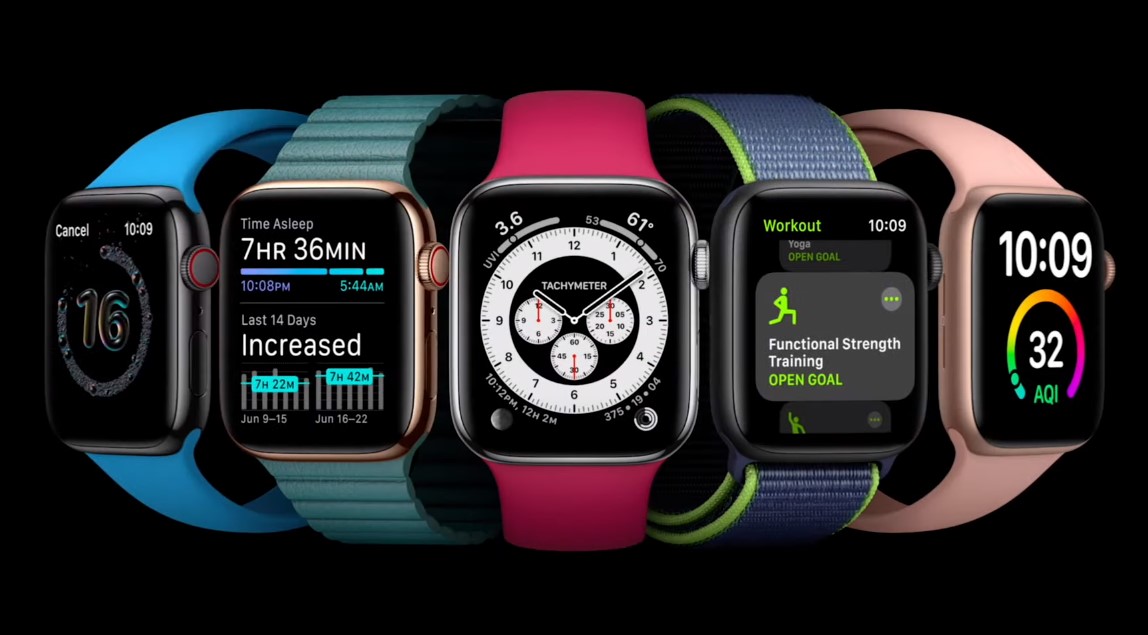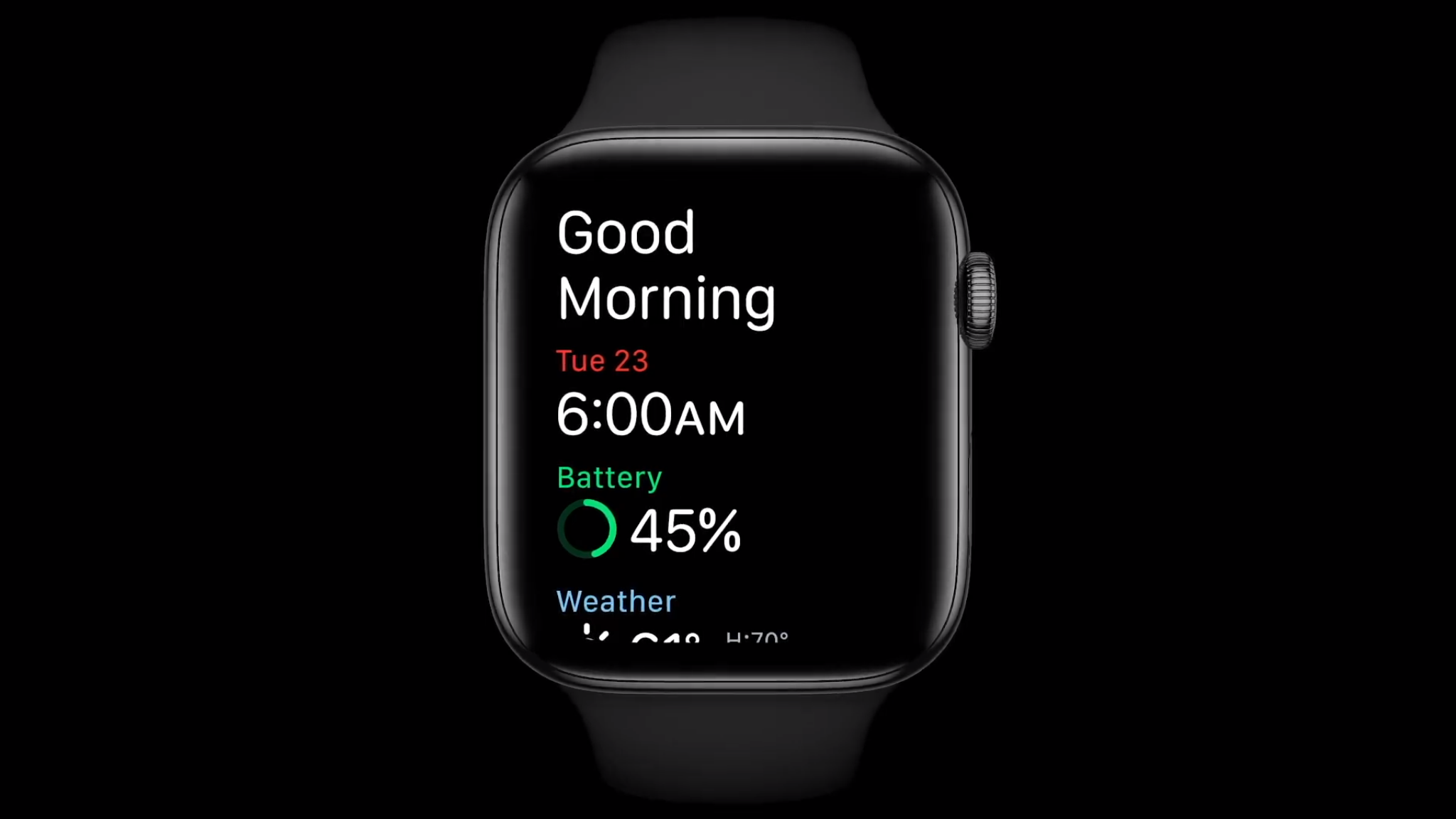Apple watchOS7 will be a game changer — here’s why
The Apple Watch will become the top sleep tracking tool, despite its drawbacks

Calls for native sleep tracking on the Apple Watch have finally been answered. Starting this fall, Apple will let Apple Watch Series 3 or newer users see how well (or poorly) they get shut-eye with the watchOS 7 software update, and the company could put sleep tracking on the map as a result.
Announced at WWDC 2020, the watchOS 7 Sleep app shows users how much time they spend in snooze-ville when they wear their smartwatch overnight. It leverages the Apple Watch's built-in accelerometer and heart rate sensor to detect subtle movements that signal respiration while users are in bed and sleeping. In the morning they'll receive a sleep analysis chart showing how many hours they've slept in the past week.
- All the iOS 14 features coming to iPhone this year
- The best sleep apps for tracking shut-eye
For Apple Watch owners who have turned to third-party sleep apps for insight on their unconscious state, the addition of Sleep in watchOS 7 sounds like a cause for celebration. However, not only will the Apple Watch's sleep tracking demand more troubleshooting than with other wearables, but it's much less ambitious — and that may not matter for the legions of Apple Watch users.
In recent years, health has become an integral pillar to the Apple Watch's success. Along with sleep tracking, Apple will introduce dedicated mobility metrics in watchOS 7, one of which can recognize potential balance problems for users who shuffle their feet often. Both features join the ranks of ECG readings, fall detection and noise exposure alerts in a catalog of wellness tools that the competition can't seem to catch.
"The farther Apple moves into health, the Watch becomes not a discretionary purchase but a necessary one," said Avi Greengart, lead analyst at Techsponential. "From a business perspective, it's exactly what you want to be."
And, as the largest smartwatch maker in the world, with a 47.9 percent share of the market according to Statista, Apple can rely on its Apple Watch users to make sleep tracking the hot new health tool despite its delayed start.
"Apple is late to this feature, but it's so far ahead of everyone else in [the smartwatch] category that it won't matter," said Greengart.
Get instant access to breaking news, the hottest reviews, great deals and helpful tips.
For those even slightly interested in sleep tracking, the suggestion alone of the next-generation series offering faster charging and better battery life could "drive upgrades all by itself," cementing Apple's reign in the wearable industry.
But, an early preview of Apple Watch’s sleep tracking shows that it’s not as sophisticated as that found on Fitbits’s wearables, which can identify sleep stages and even wake you up at an optimal point in your cycle. Instead, Apple sleep tracking will tell you how many hours of rest you get each night, differentiating the time you spend in bed versus time you spend asleep. The Sleep app will also attempt to help you establish a sleep schedule and set sleep goals.
Apple is betting the type of person with those motivations is already wearing its Watch and obsessed with activity tracking, and that the device doesn't need to provide actionable sleep data to get them interested in taking sleep tracking for a spin.
"A fitness-minded person would potentially benefit from tracking their sleep if they're already taking general inventory of their health behaviors," said Dr. Joshua Tal, a Manhattan-based sleep specialist. "Somebody who is constantly gathering data on their eating or exercise could want to see connections to their sleep and recognize evidence on their own."
And then there’s the issue of battery life. During the WWDC keynote presentation, Apple didn’t reveal any details about the Apple Watch 6 hardware, but it seemed to suggest that its battery life wouldn’t be all that much better than the Apple Watch 5, which lasts around 18 hours. That’s because, for those who plan to use sleep tracking, watchOS 7’s “Wake Up” feature will encourage users to charge their watches in the morning.

When I've left my Apple Watch on my wrist overnight, it's been out of laziness — laziness I pay for in the morning when I must decide whether to delay my workout, carry it out while my smartwatch charges or use it as an excuse to skip exercise altogether.
While not as sophisticated, the Fitbit Versa 2 lasts up to 5 days on a charge, so you don’t have to worry about not juicing it up every night.
"Sleep-tracking is a long-overdue addition to watchOS, but it will be more usable on a future generation of the Apple Watch with better battery life, given that current models last about 18 hours and take 1.5 hours to charge," said Ben Wood, Chief of Research for CSS Insight.
There's no confirmation that the Apple Watch 6 will have a better battery life, but Apple won't let my Series 5's stamina be blamed for my charging negligence. If your Watch doesn't have at least 30% of juice an hour before it's your scheduled bedtime, it will remind you to plug it for a bit.
And that's how wearing the Apple Watch to bed becomes part of a nighttime routine. Even I, a sleep tracking doubter, could see myself charging it prior to slathering on skin creams and watching an episode of some sitcom. I'd strap my Apple Watch back on as my final action of the night, and doze off into dreamland.

Kate Kozuch is the managing editor of social and video at Tom’s Guide. She writes about smartwatches, TVs, audio devices, and some cooking appliances, too. Kate appears on Fox News to talk tech trends and runs the Tom's Guide TikTok account, which you should be following if you don't already. When she’s not filming tech videos, you can find her taking up a new sport, mastering the NYT Crossword or channeling her inner celebrity chef.
 Club Benefits
Club Benefits





